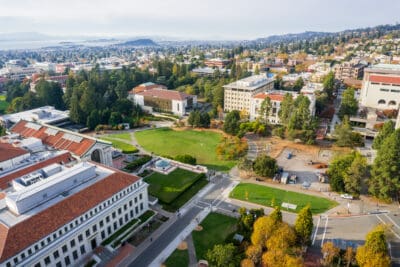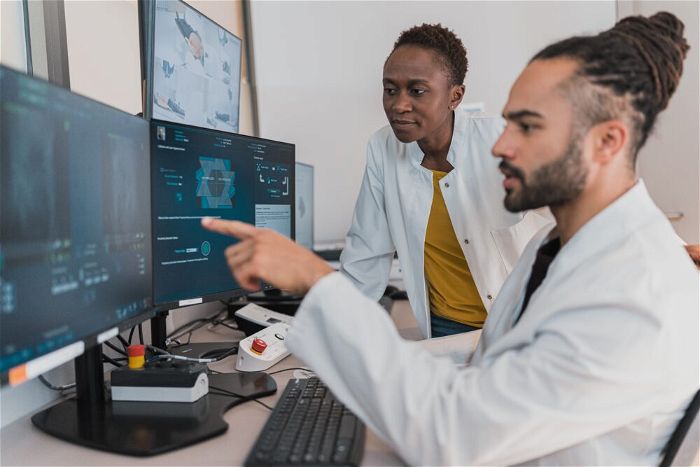
Next UC President: Drive Economic Development for All Californians
January 13, 2020
At a Glance
As the University of California searches for a new president, it should keep in mind the vast role the UC system could play in advancing economic opportunity for all Californians.
The University of California system is a gem—for California, the country, and the world. Its graduates go on to be leaders in countless sectors of society, including science, medicine, and the arts. Its research creates technological breakthroughs that generate new business and industry. And it employs more than 190,000 people, making it one of the state’s largest employers.
Clearly, the 10-campus system is not only a critical component of the state’s and the nation’s talent development pipeline but also a key economic engine.
As the Board of Regents looks for the next UC president, it should choose a leader who would push the university to play a more expansive role—to harness its capacity to advance economic growth that is more inclusively shared by all Californians.
That is what I said when I testified before the board’s presidential search committee last month, and I urge others to echo those ideas in future testimony. The Regents will be seeking other perspectives at similar events across the state in the coming months. This step is commendable given the important public leadership role the president plays in the state and the influence the UC system has over all of education in California.
[UC needs] a leader who would . . . advance economic growth that is more inclusively shared.
UC President Janet Napolitano is leaving big shoes to fill. The president’s office is a key unifying force for all 10 campuses in strategic planning, admissions, and student support services. The office also supports academic, research, and public service programs across the system, and it centralizes business functions such as procurement.
While advances in technology are creating new jobs, increasing productivity, and expanding prosperity, the benefits are not reaching all of the state’s residents. Some of California’s fastest-growing populations are more likely to get or have jobs that will eventually be automated out of existence or come without essential benefits like health care.
To meet this challenge, we know that our education systems, including UC, must better serve California’s increasingly diverse populations and boost their educational attainment by improving access to financial aid, support systems, and more equitable and efficient articulation, admissions, and transfer processes. I made these points along with some of the leading researchers and advocates for improving the educational attainment of California’s youth, especially underserved populations.

However, this is not all that matters: Education attainment and workforce participation are inextricably linked to the factors within communities and regions that profoundly affect the prospects of economic advancement for individuals. These factors include housing, transportation, gentrification, environmental sustainability, and food security. And too often, economic development strategies for communities result in growth that is not inclusive and simply makes the well-off more so.
Fortunately, the UC system is in a unique position to help communities address these challenges—with the right leadership.
Therefore, my testimony included specific recommendations for how the university and its new president should use their influence to ensure that more of California’s communities, in which UC campuses are anchor institutions, grow and thrive through more inclusive processes and outcomes for residents.
Too often, economic development strategies result in growth that is not inclusive and simply makes the well-off more so.
The UC campuses are local anchor institutions that could and should do more to contribute to the equitable and sustainable prosperity of the communities and regions in which they reside. I urge them to do the following:
- Align institutional practice to meet the needs of local communities and engage in inclusive processes as the system develops and grows, in order to avoid displacement and gentrification that is exclusionary.
- Deploy targeted procurement strategies aimed at creating local jobs and community wealth.
- Build and strengthen strategic economic and social partnerships in their communities, especially with those who are the most vulnerable.
- Harness the intellectual and R&D power of the university system to solve real community challenges and support revitalization efforts.
The next president can be a catalyst for such activities by establishing a vision and goals consistent with these priorities and recognizing campus leaders who are moving toward them. You can view everyone’s testimony at the event here.
With a home base in Oakland, JFF is committed to ensuring that our efforts to transform and improve education and workforce systems also advance inclusive economic development in the state’s communities where we are doing our work.
Related Content

Postsecondary Network
Reforming math in Florida, ensuring equity in Washington, boosting student support in Michigan, partnering with the workforce system in New Jersey—JFF’s renowned network advances policies and practices that help all students attain high-value credentials. Reforming…

Leadership Academy
The Leadership Academy connects and supports a network of community leaders, building an understanding of future work and learning trends, and creating opportunities for reflection and design of whole-community strategies that best prepare young residents…

Breaking the Boundaries Between High School and College: How to Scale Success for Low-Income Students
Thousands of low-income students have earned associate’s degrees—for free—by the time they finished high school, thanks to early college designs JFF has spread nationally. Now JFF proposes a bold way to scale this proven model—a…

Workforce Development & Regional Economies
Regional workforce development builds capacity and shapes practices to help more people and communities succeed. Our federal and regional workforce development systems have the potential to promote strong economies and expand access to quality jobs.…